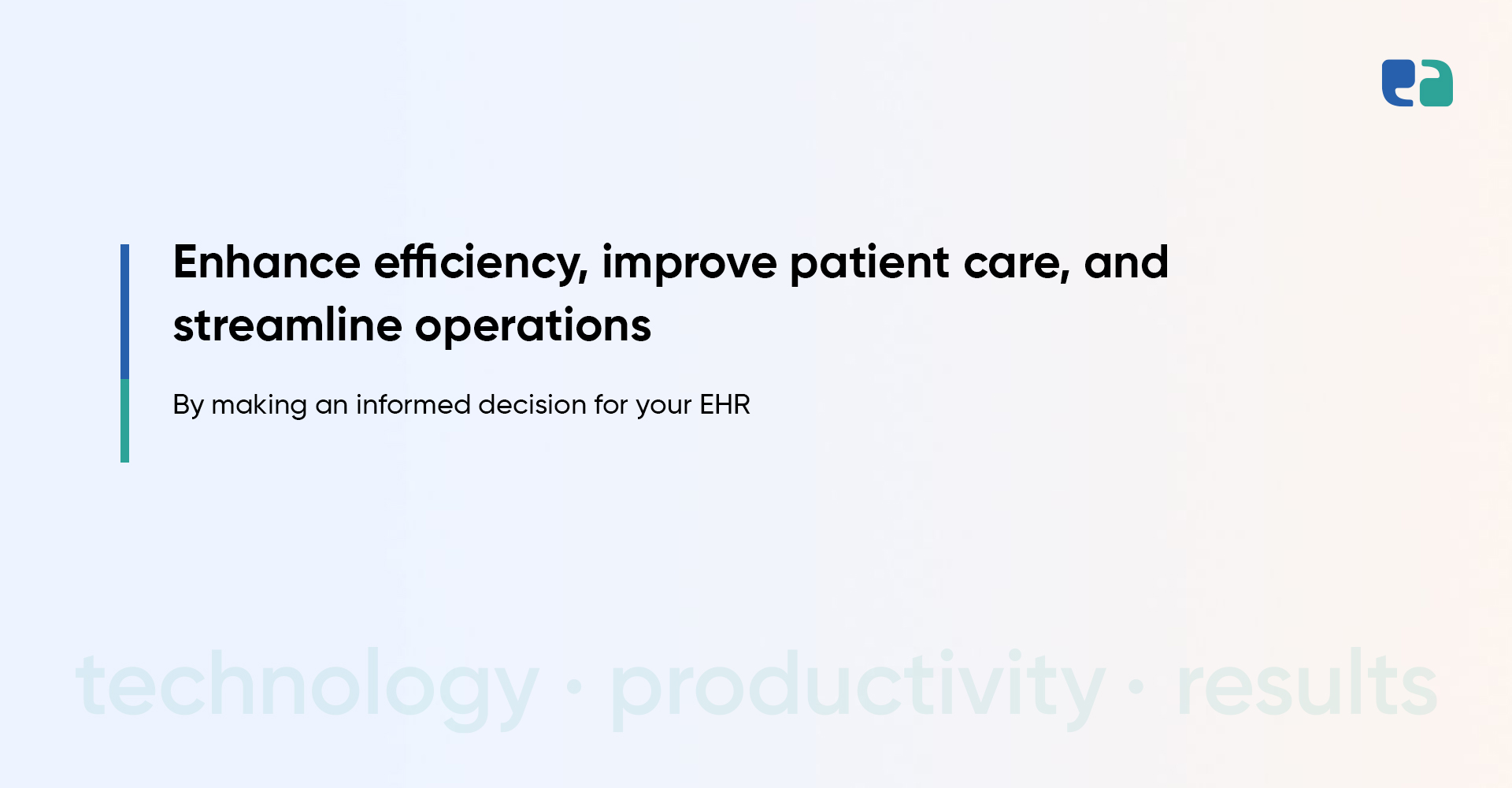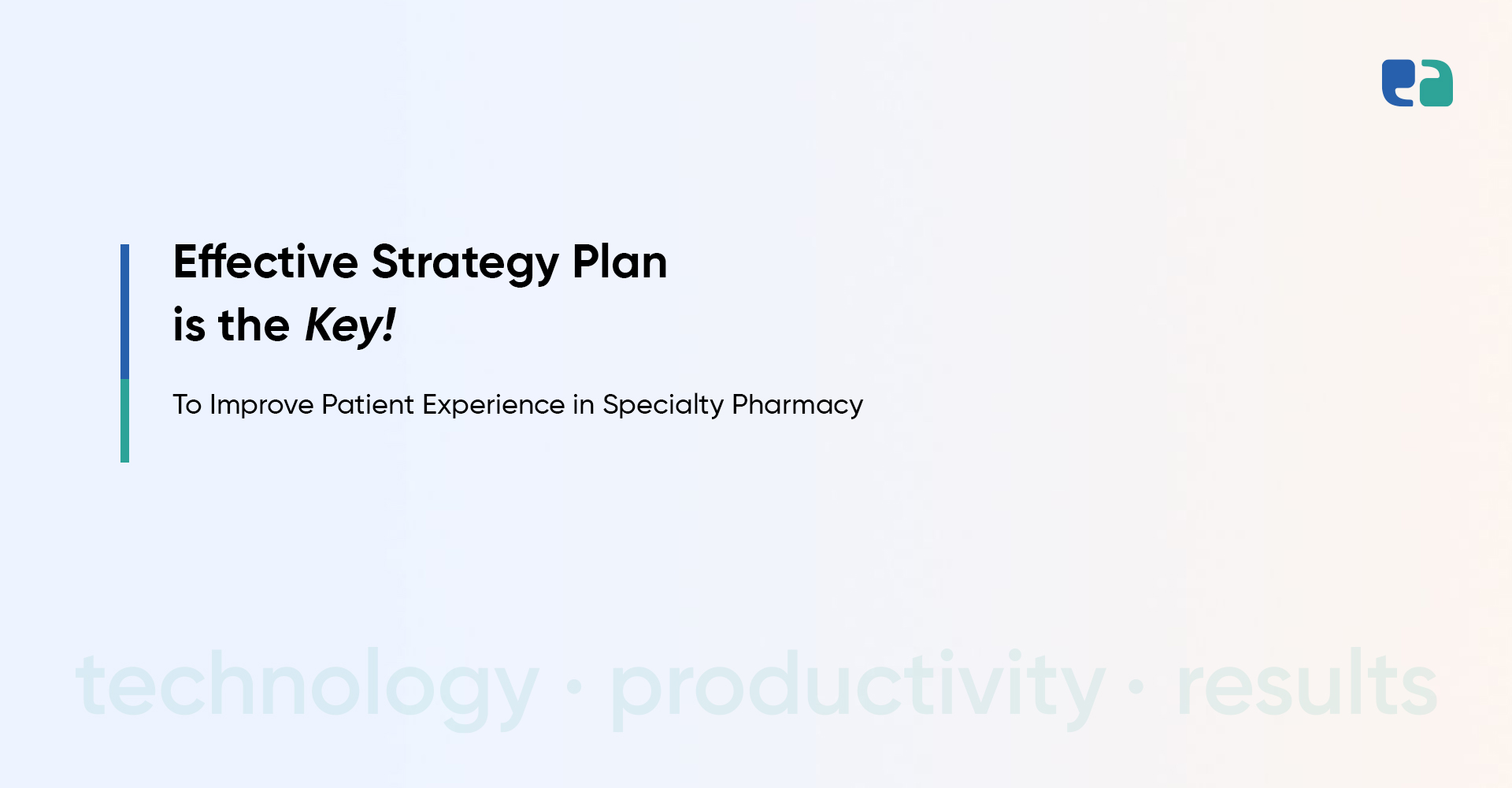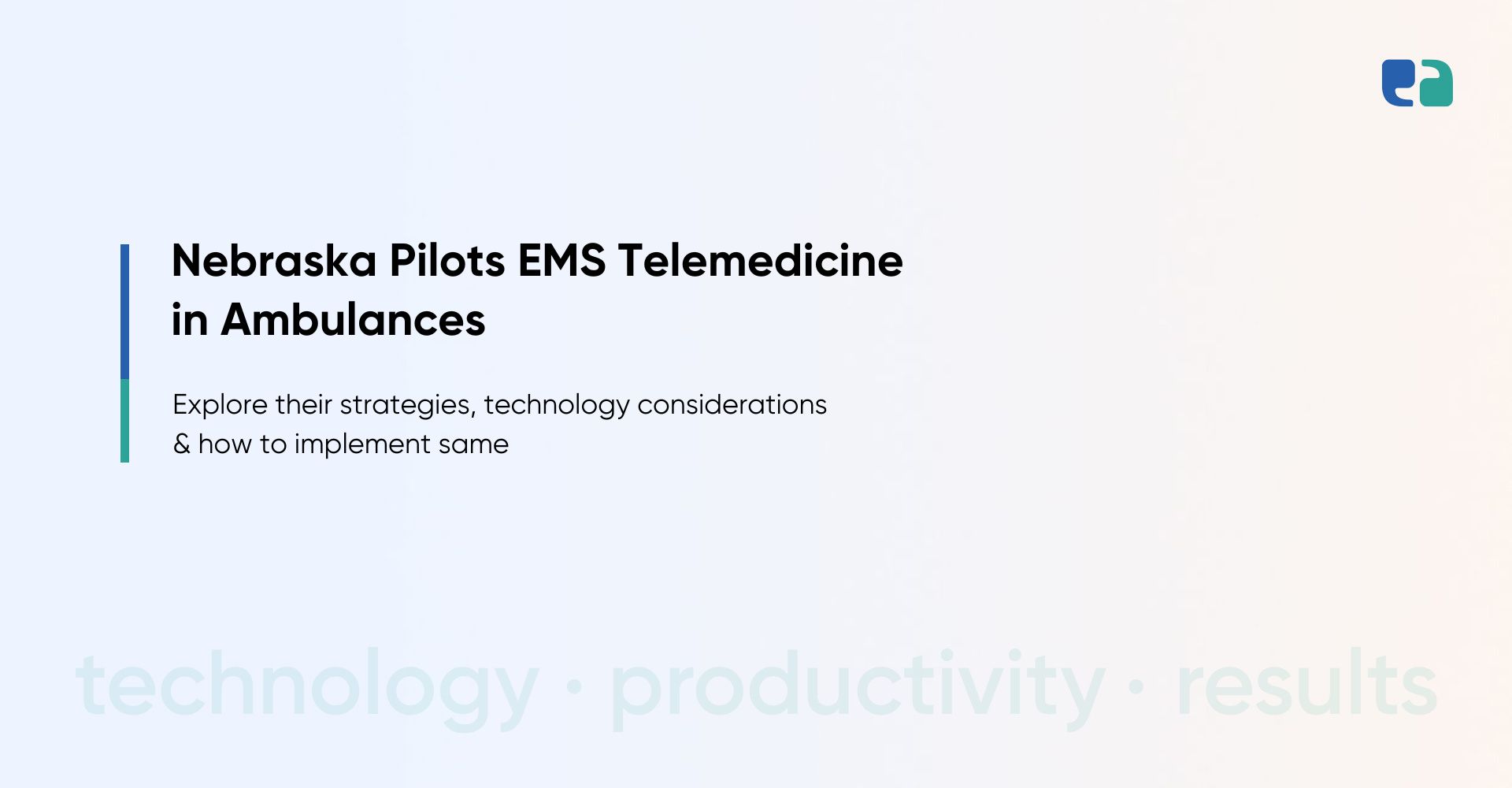Selecting an Electronic Health Record (EHR) solution is a crucial decision for small and independent medical practices.
The right EHR can
- Enhance efficiency
- Improve patient care
- Streamline operations.
However, selecting the right EHR software for your organization can be a daunting task, with numerous factors to consider.
We will discuss the common mistakes and ways to avoid them for small practices, ensuring that you make an informed decision that aligns with your practice’s needs.
Neglecting Workflow Analysis
One of the most crucial mistakes healthcare providers make is failing to conduct a thorough workflow analysis before selecting an EHR system.
Each practice has unique processes and requirements, and understanding them is vital to choosing an EHR that integrates seamlessly into your existing workflow.
Ensure that the selected software enhances efficiency by taking the time to
- Identify pain points
- Assess your practice’s specific needs
- Involve key stakeholders
Overlooking Scalability and Flexibility
When choosing EHR software, it’s essential to consider the future growth of your practice.
Overlooking scalability and flexibility can lead to a significant setback in the long run.
Ensure that the software can accommodate your expanding patient base, additional providers, and evolving healthcare regulations.
Scalable EHR systems allow for easy customization, integration with other systems, and updates to adapt to changing industry requirements.
Failing to Assess Vendor’s Reputation and Support
Selecting a reliable vendor is just as crucial as choosing the right EHR software itself.
Failing to assess the reputation, experience, and customer support capabilities of the vendor can result in numerous challenges down the road.
Thoroughly research potential vendors, read reviews, and consider their track record in the healthcare industry.
It’s essential to choose a vendor that offers
- Reliable technical support
- Regular updates
- Responsive customer service to address issues (if any)
Ignoring Interoperability
Interoperability is a key factor to consider when selecting EHR software.
The ability of your EHR system to seamlessly exchange information with other systems, such as laboratories, pharmacies, and other healthcare providers, is vital for efficient care coordination.
Neglecting interoperability can result in
Data silos
Increased administrative burdens
Reduced collaboration between healthcare professionals
Ensure that the EHR software adheres to interoperability standards, such as HL7 or FHIR, to facilitate data exchange and enhance patient care.
Underestimating Training and User Adoption
Transitioning to a new EHR system requires proper training and user adoption to ensure a smooth implementation.
Underestimating the importance of training can lead to resistance from staff members and hinder the software’s effective utilization.
Provide comprehensive training to all users, including physicians, nurses, and administrative staff, to familiarize them with the software’s functionalities and address any concerns.
Encourage feedback and ongoing support to ensure a successful transition and maximize the benefits of the EHR system.
Disregarding Data Security and Privacy
Data security and privacy are paramount in healthcare.
Failing to prioritize these aspects when choosing EHR software can have severe consequences.
Ensure that the software complies with industry regulations, such as HIPAA, and employs robust security measures to protect patient data from unauthorized access or breaches.
To safeguard sensitive information, assess the vendor’s
- Data encryption protocols
- Backup procedures
- Disaster recovery plans
Overlooking Integration Capabilities
EHR software should seamlessly integrate with other systems and technologies used within your practice.
Overlooking integration capabilities can lead to inefficient workflows and manual data entry.
Consider the software’s ability to integrate with
- Laboratory systems
- Billing software
- Telemedicine platforms
- other relevant systems
The advantages of Integration are
- Streamlined processes
- Reduced errors
- Improved overall productivity
Neglecting Mobile Accessibility
In today’s mobile-centric world, overlooking the importance of mobile accessibility in EHR software can hinder your practice’s efficiency.
Healthcare providers need the flexibility to access patient records and clinical data on the go, using smartphones or tablets.
Ensure that the EHR software offers a mobile-friendly interface or a dedicated mobile app that allows secure access to patient information, regardless of location.
Mobile accessibility promotes
- Better patient care coordination
- Facilitates telemedicine consultations
- Enhances overall productivity.
Ignoring Cost and Return on Investment (ROI)
The cost of implementing and maintaining an EHR system is a significant consideration for healthcare providers.
Ignoring cost and failing to assess the potential return on investment can lead to financial strain and inefficiencies.
Consider the
- Upfront costs
- Ongoing licensing fees
- Hardware requirements
- Software implementation expenses
Additionally, evaluate the potential benefits and savings the EHR system can offer in terms of streamlined workflows, reduced paperwork, improved billing accuracy, and enhanced patient outcomes.
Conduct a cost-benefit analysis to ensure that the selected EHR software aligns with your budget and provides a favorable ROI in the long run.
The Right EHR can Prove to be an Asset for Your Organization
Choosing the right EHR software is a critical decision for healthcare providers, impacting
- Operational efficiency
- Patient care
- Workflows
- Overall success
By avoiding these common mistakes, you can make an informed choice that aligns with your practice’s needs.
A Customizable EHR Solution can be the Solution to Your EHR Requirements
There are many vendors providing healthcare IT solutions.
You will have to thoroughly evaluate different EHR systems and choose a reliable vendor by involving key stakeholders.
Successful EHR implementation enhances your practice’s efficiency and improves patient outcomes.
But did you consider a customizable solution that can meet all your organizational needs?
If yes, hit the contact button and our team will reach out to you within 2 business days to discuss your requirements and how we can help you achieve them.
We deliver experience. Not just product.
Let Us Introduce Ourselves
We’re an Ontario-based healthcare IT company.
With 8+ years of exclusively working with the healthcare industry, we have understood the compliance and regulation requirements.
We’ve successfully delivered 60+ projects that are compliant with healthcare regulations.
If you want to build your EHR or upgrade it with the changing HIPAA requirements, reach out to us by filling out the contact form.



